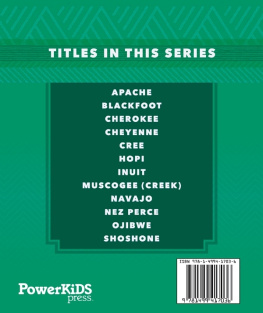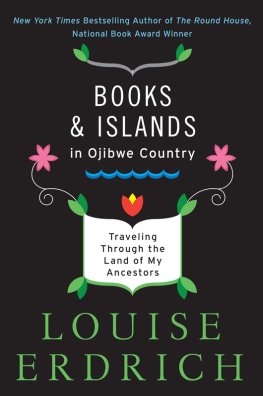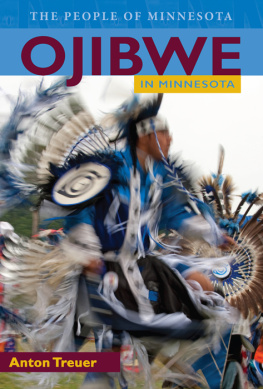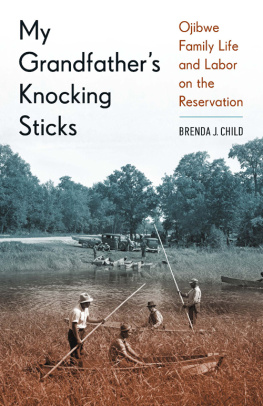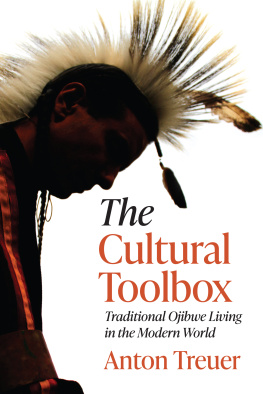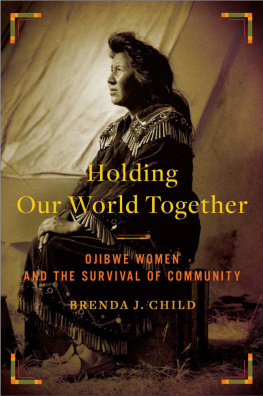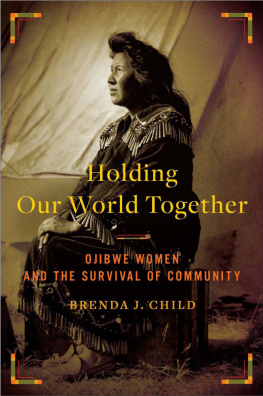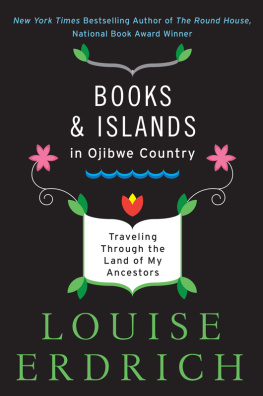
Published in 2016 by The Rosen Publishing Group, Inc.
29 East 21st Street, New York, NY 10010
Copyright 2016 by The Rosen Publishing Group, Inc.
All rights reserved. No part of this book may be reproduced in any form without permission in writing from the publisher, except by a reviewer.
First Edition
Editor: Karolena Bielecki
Book Design: Kris Everson
Reviewed by: Robert J. Conley, Former Sequoyah Distinguished Professor at Western
Carolina University and Director of Native American Studies at Morningside College and Montana State University
Supplemental material reviewed by: Donald A. Grinde, Jr., Professor of Transnational/American Studies at the State University of New York at Buffalo.
Photo Credits: Cover Thomas Sbampato/imageBroker/age fotostock; pp. Joel Sartore/National Geographic Image Collection/Getty Images.
Library of Congress Cataloging-in-Publication Data
Ramsey, Torren.
Ojibwe / Torren Ramsey.
pages cm. (Spotlight on Native Americans)
Includes bibliographical references and index.
ISBN 978-1-4994-1700-5 (pbk.)
ISBN 978-1-4994-1701-2 (6 pack)
ISBN 978-1-4994-1703-6 (library binding)
1. Ojibwa IndiansHistoryJuvenile literature. 2. Ojibwa IndiansGovernment
relationsJuvenile literature. 3. Ojibwa IndiansSocial life and customsJuvenile
literature. I. Title.
E99.C6R14 2016
977.00497333dc23
2015009238
Manufactured in the United States of America
CPSIA Compliance Information: Batch #WS15PK: For Further Information contact Rosen Publishing, New York, New York at 1-800-237-9932
CONTENTS
OJIBWE LAND AND ORIGINS
CHAPTER 1
One of the most numerous of the native populations in North America, the Ojibwes are scattered across the United States and Canada. The Ojibwe, Potawatomi, and Ottawa tribes were originally one people. Their traditional territory stretched from the northern Great Plains near present-day Lake Winnipeg in Manitoba, Canada, to the southeastern shores of the Great Lakes in todays United States, and from central Saskatchewan to southern Ontario in todays Canada.
No one knows exactly how the Ojibwes and other Native Americans came to North America. Like most native peoples, though, Ojibwes tell a traditional story to explain their origins. Long ago, only water covered the earth. Creators helper, called Naanabozho, and his friends were floating on a raft. Naanabozho asked his friends to dive under the water and get some earth. Many tried and failed. Then Muskrat dived down and came back with sand in his paws. Naanabozho blew on the sand, spreading it over the water to create dry land. Muskrat kept diving for sand, and Naanabozho kept blowing on it until the land was large enough to support people.
The Ojibwes are also known as the Chippewas. However, they call themselves Anishinaabe or its plural, Anishinaabeg, which means the people.
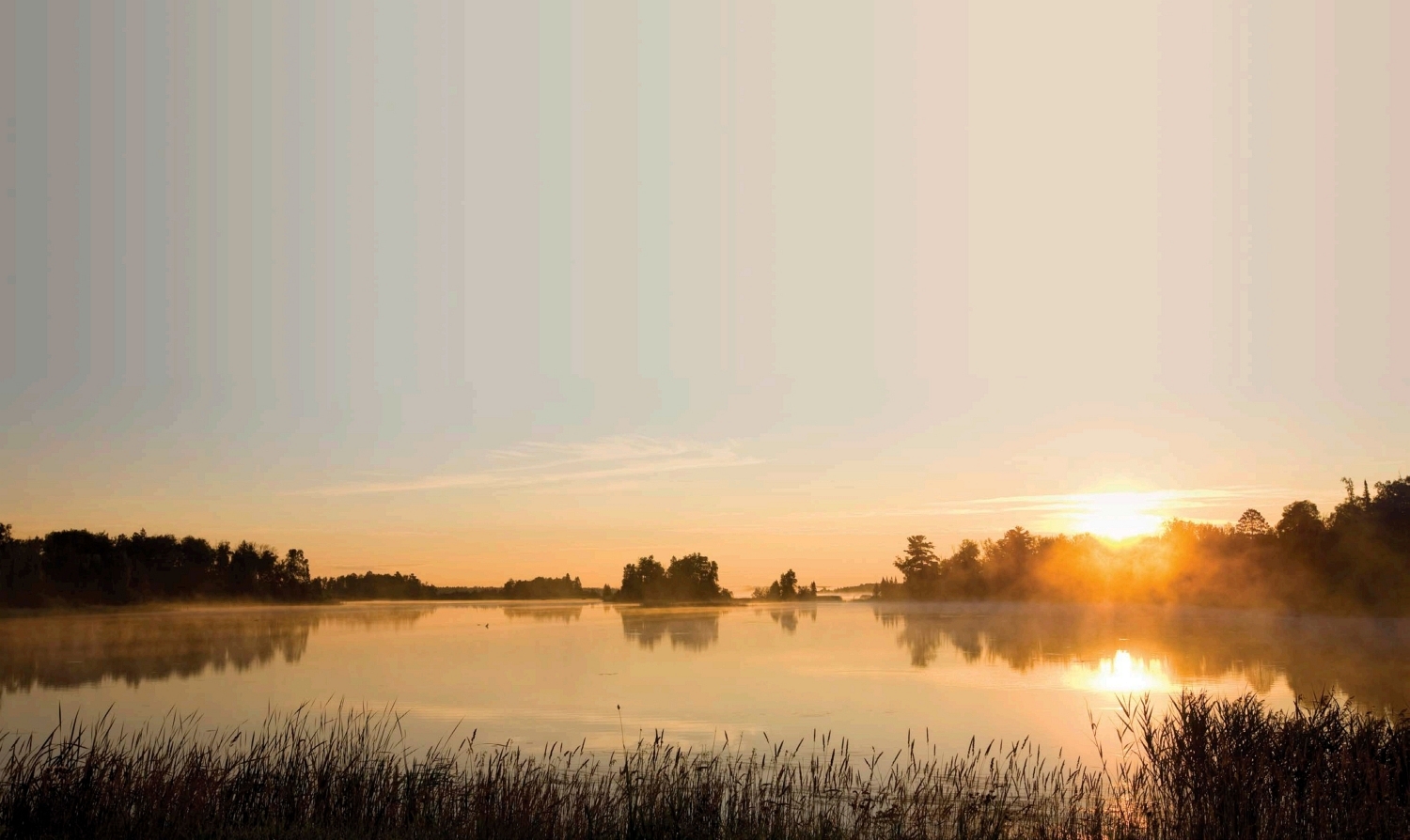
Many of the wilderness areas of the lakes and woods of Minnesota and Wisconsin have hardly changed since the time when the Ojibwes first met Europeans.
EARLY CONTACT WITH EUROPEANS
CHAPTER 2
Europeans came to North America beginning in the late fifteenth century in search of land, wealth, and religious freedom. The French began exploring the North American continent in the early 1600s looking for furs. Wanting to trade, they first came into contact with the Ojibwes in 1622. The traders and the Ojibwes soon built a strong that benefited both peoples: the French got furs, while the Ojibwes received guns and other trade goods such as cast-iron pots, iron axes, and blankets. Guns helped the Ojibwes defend their territory.
The Ojibwes even kept out the powerful Haudenosaunees. The Europeans pushed the Haudenosaunees (called Iroquois by the Europeans) into the eastern side of the Ojibwes territory in what is now Michigan.
In 1679, French trader Daniel du Luth persuaded Ojibwe leaders to attend a with the Dakota-speaking people of the Seven Bands of the Teton. Du Luth helped these two traditional enemies form an alliance. Peace brought stability to the region, as well as more trade. The Ojibwes gained more hunting grounds to the west in Dakota-held territory in todays northern Minnesota and Wisconsin, while the Dakotas received a steadier supply of trade goods from the French.
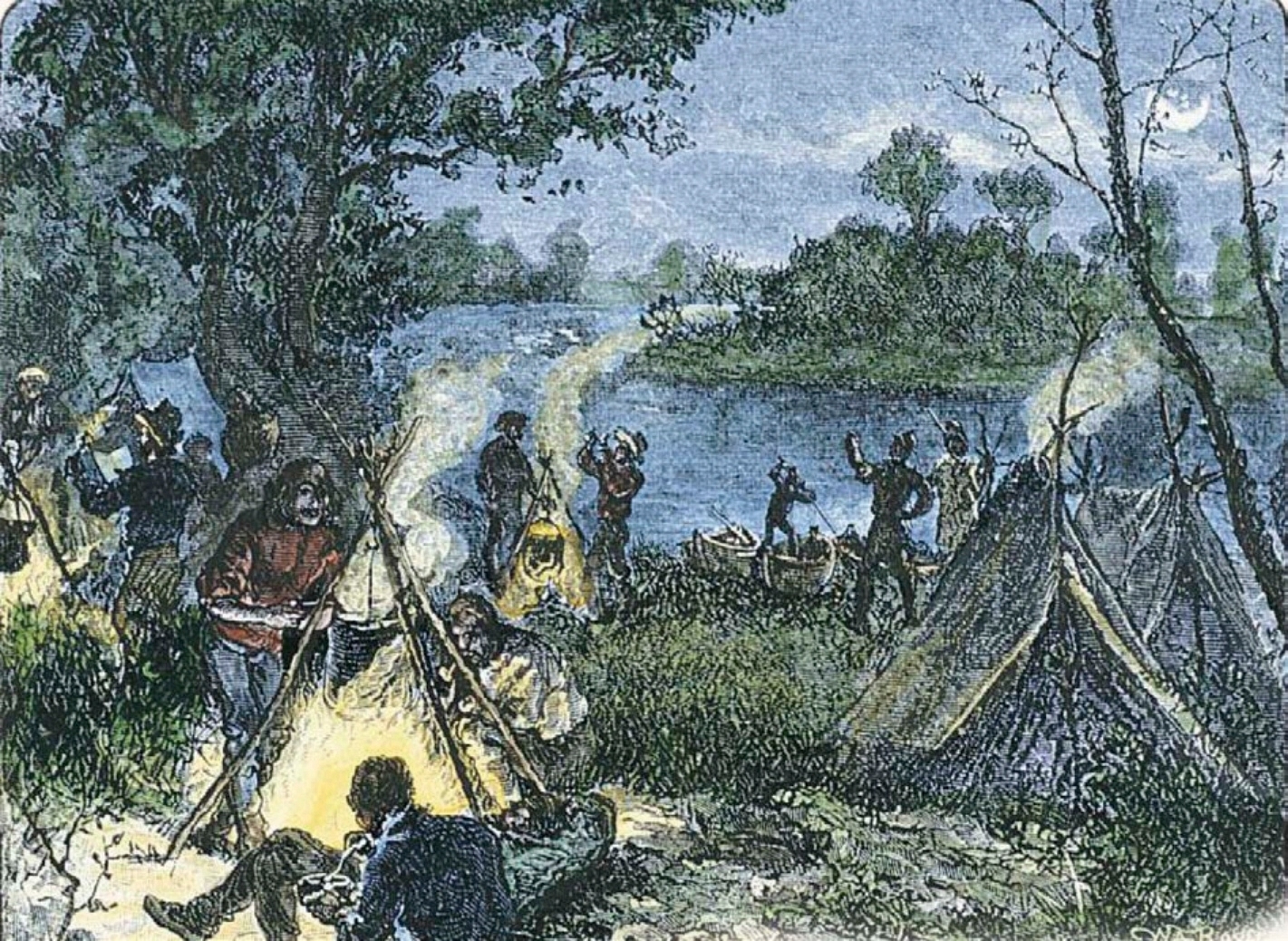
Print of a French fur traders camp. The Ojibwes were excellent hunters and trappers, and through their trade with the French, they became powerful and wealthy.
WESTWARD MOVEMENT AND CONFLICT
CHAPTER 3
As the French fur trade moved westward, so did the Ojibwes. They spread out into the Great Lakes, the Great Plains, and what is now Michigan and Wisconsin in the United States and Ontario, Canada. The Ojibwe-Dakota alliance lasted until 1736, when the Dakotas broke. By 1750, the Ojibwes were occupying the land held by the Dakotas.
As more whites illegally moved onto natives land, the Ojibwes battled the Dakotas and other neighboring tribes over the remaining hunting land from the mid-1700s to the mid-1800s. Fights such as the Battle of the Brul in 1842 eventually resulted in Ojibwes permanently driving the Dakotas west across the Mississippi River. The Ojibwes sided with the French against the British during the French and Indian War (17541763), but the British prevailed and seized Canada from the French.
In 1776, the British and the Americans went to war over who would control the colonies in America. The Americans, with the help of many of Paris, signed at the end of the American Revolution (1783), established the boundaries between the United States and Canada, splitting the Ojibwes territories between the two countries.
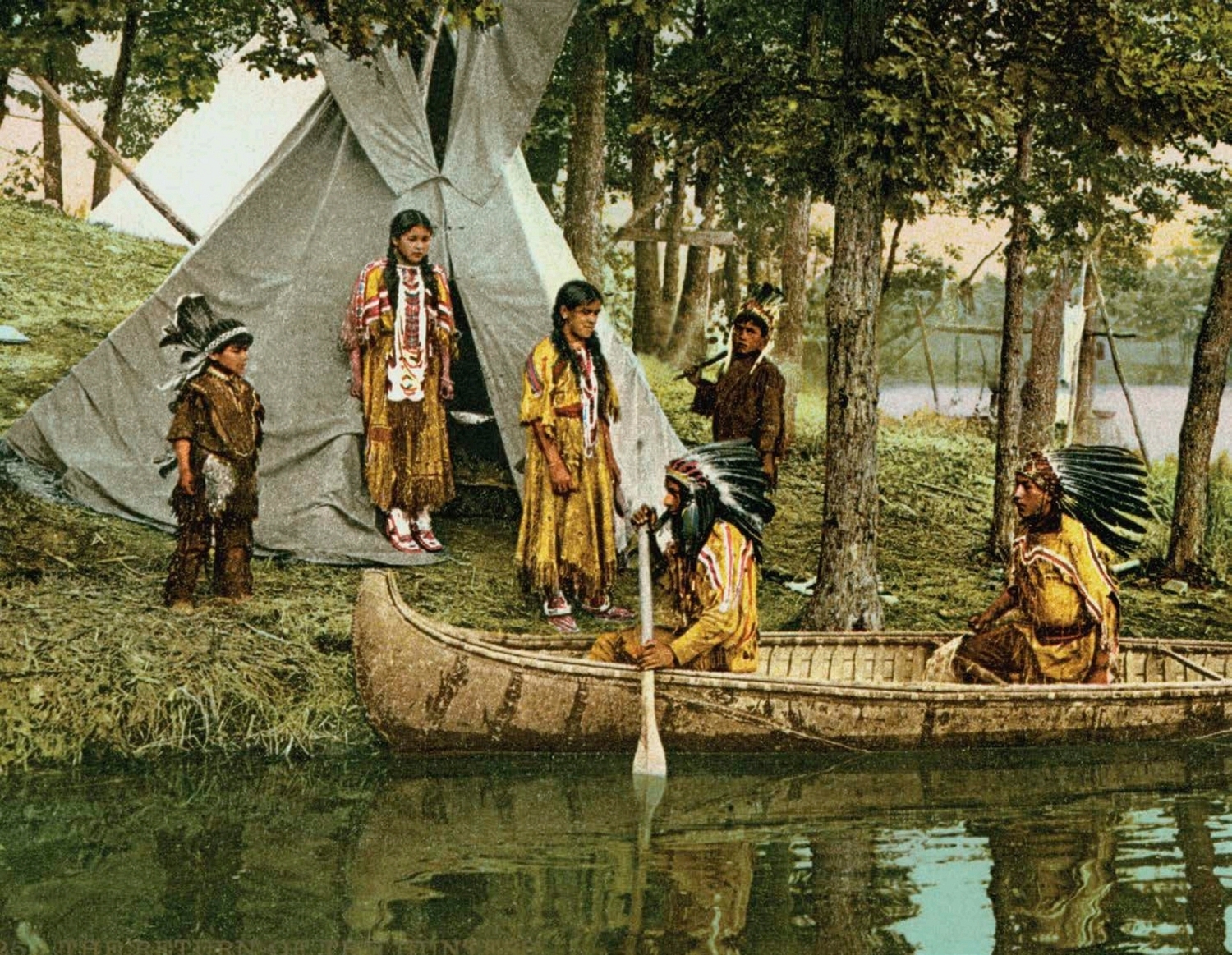
This colorized 1904 photograph shows Ojibwe hunters returning to their camp in Minnesota on a birch-bark canoe.
FORCED REMOVAL
CHAPTER 4
Through treaties, both the Americans and the British in Canada forced the Ojibwes to give up land. The U.S. and Canadian governments also wanted the Ojibwes to take up Euro-American-style farming and live in what the British called model villages.
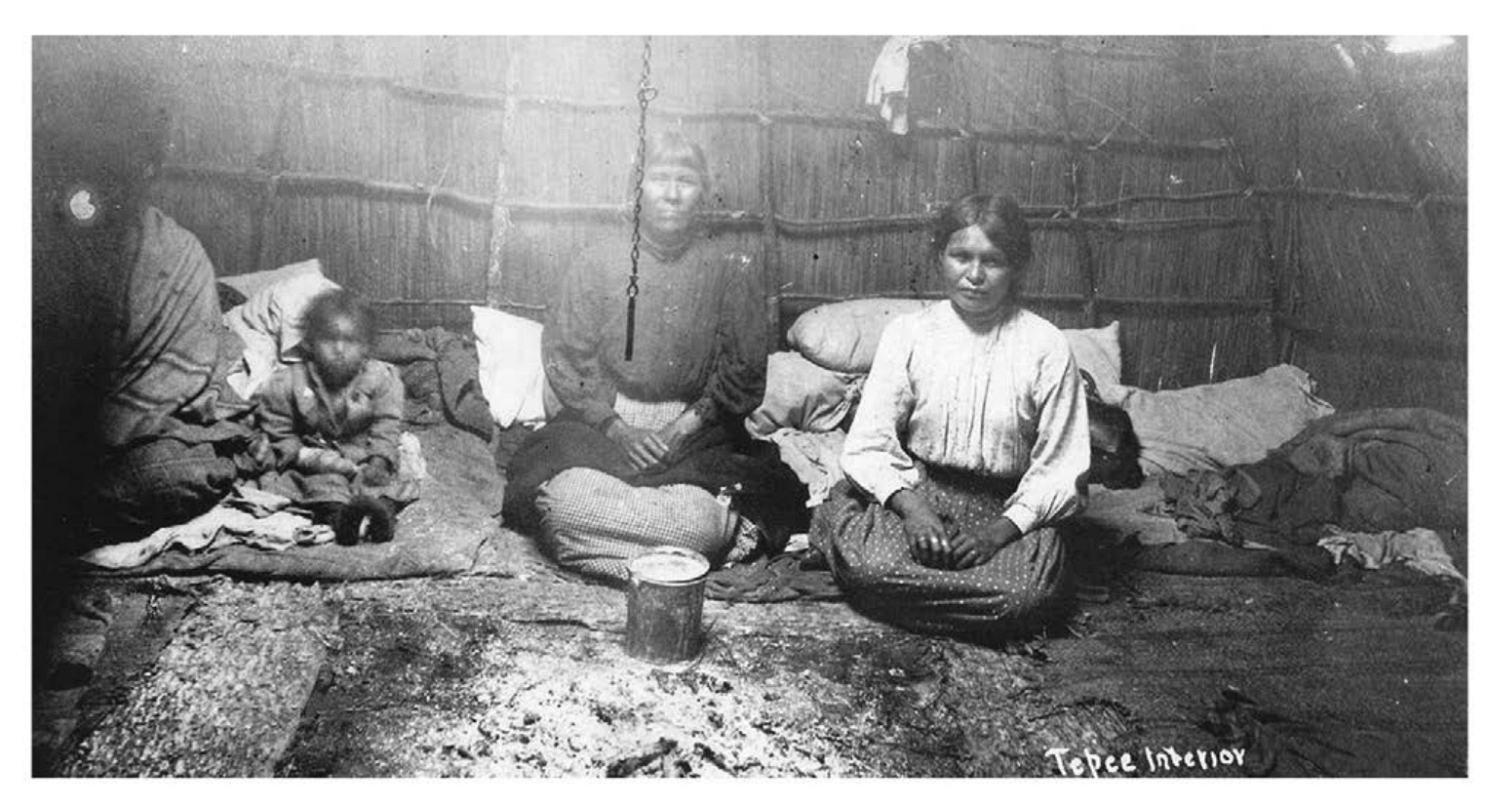
Life was hard for the Ojibwes during the nineteenth century as they were forced to give up more and more land to the U.S. and Canadian governments. This family was photographed in their home on a in 1900.
These villages were designed to force the Ojibwes to assimilate, or to live like Euro-Americans and give up their tribal customs. By 1900, treaties had forced Ojibwes to move onto reservations. However, neither government stopped whites from illegally settling on Ojibwe land.
Ex-fur trader William Robinson a treaty between the Ojibwes living near Lake Superior and the Canadian government. In the treaty, the Ojibwes agreed to give the government some land. In return, the Canadians agreed that each Ojibwe band could select its own reservation site and each member of the bands would receive money for the land signed over to the government. The Canadians also promised that the Ojibwes would always be allowed to hunt and fish on those lands given to the government. This treaty was quickly broken. Ojibwes were kept from hunting and fishing on the lands. As nonnatives moved onto the reservations, they took more land from the Ojibwes, and the reservations shrank in size or disappeared.
Next page
